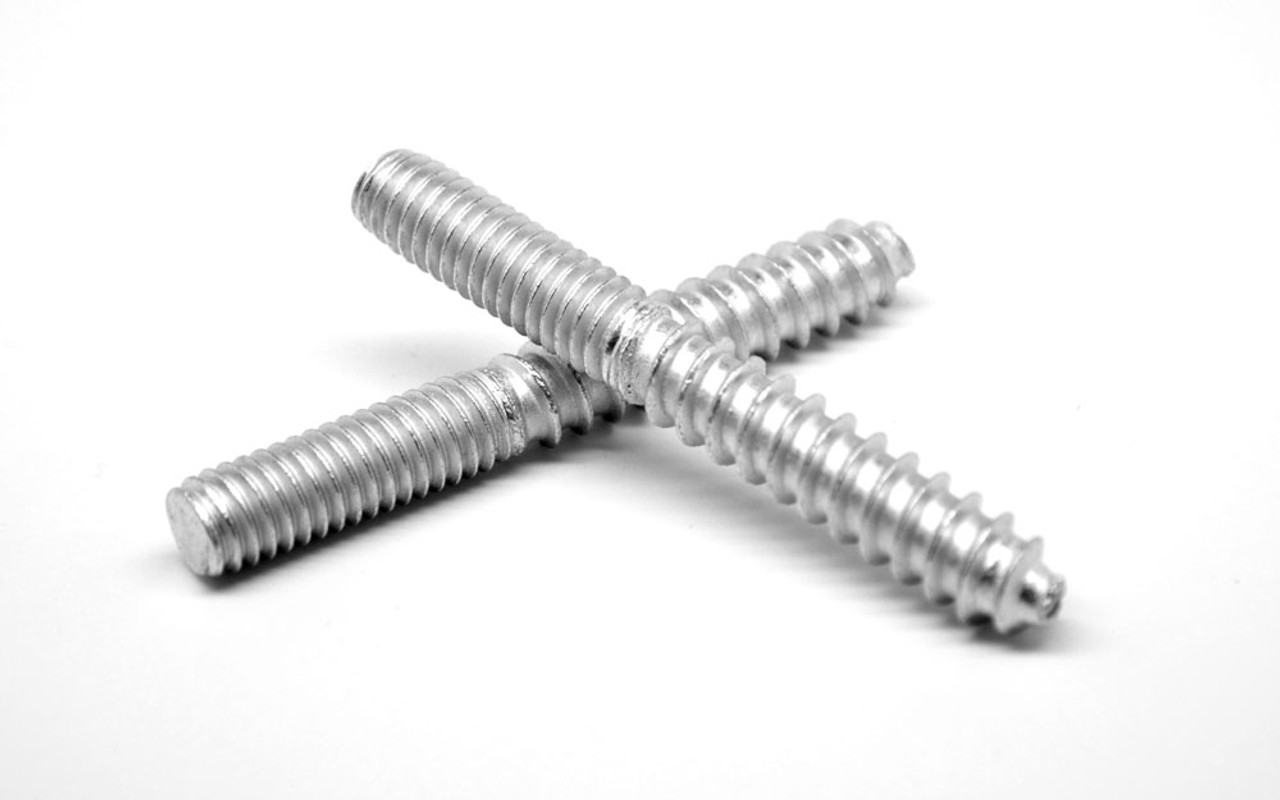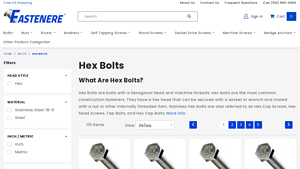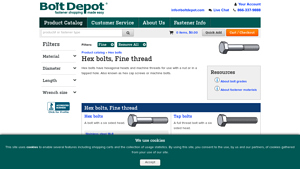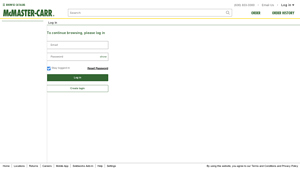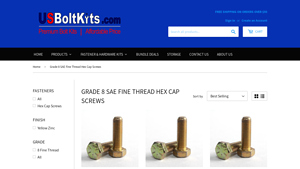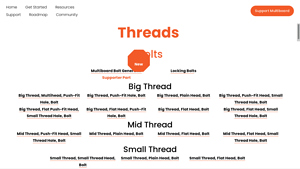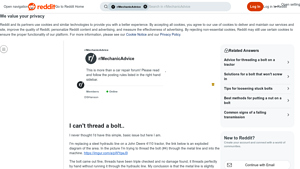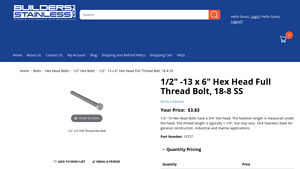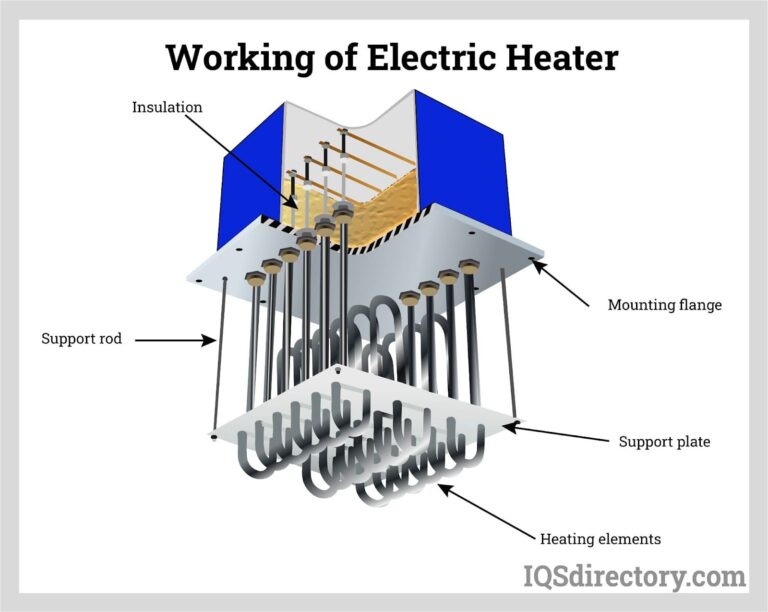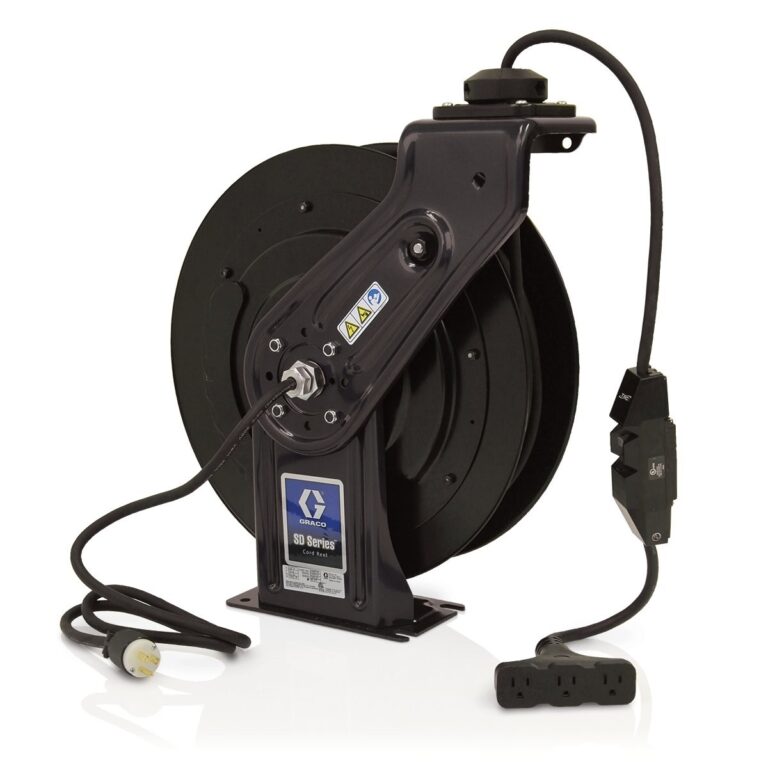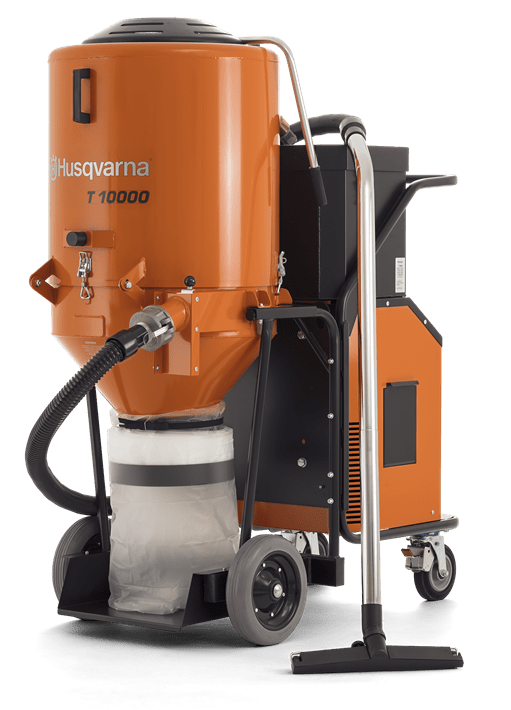Thread Bolt: The Ultimate B2B Sourcing Guide for Global Buyer
Introduction: Navigating the Global Market for thread bolt
In today’s rapidly evolving global market, sourcing high-quality thread bolts can pose significant challenges for B2B buyers, especially in regions like Africa, South America, the Middle East, and Europe. The complexity of various materials, grades, and specifications can make the procurement process daunting. This comprehensive guide aims to demystify the world of thread bolts by exploring the different types, including hex bolts, fine-thread options, and specialized variations. It will also delve into their diverse applications across multiple industries, from construction to automotive, ensuring you understand where each type excels.
Additionally, the guide will provide actionable insights on supplier vetting processes, cost considerations, and market trends, empowering international buyers to make informed purchasing decisions. By equipping you with the knowledge to navigate this intricate landscape, we aim to enhance your sourcing strategy, ensuring you select the right products that meet your operational needs and quality standards. Whether you’re based in Nigeria, Saudi Arabia, or elsewhere, this guide will serve as your essential resource for understanding and acquiring the right thread bolts for your business.
Understanding thread bolt Types and Variations
| Type Name | Key Distinguishing Features | Primary B2B Applications | Brief Pros & Cons for Buyers |
|---|---|---|---|
| Hex Bolts | Hexagonal head, machine threads, available in fully and partially threaded variations | Machinery assembly, construction | Pros: Versatile, strong, easy to install. Cons: May require specific tools for tightening. |
| Tap Bolts | Fully threaded, six-sided head, designed for use with tapped holes | Automotive, machinery, and general hardware | Pros: Provides uniform grip, suitable for tight spaces. Cons: Less effective in high shear applications. |
| Stainless Steel Bolts | Corrosion-resistant materials, available in grades 18-8 and 316 | Marine applications, outdoor equipment | Pros: Excellent durability, ideal for harsh environments. Cons: Higher cost compared to carbon steel options. |
| Grade 8 Bolts | High strength, fine threads, made from medium carbon steel | Heavy machinery, structural applications | Pros: Superior strength, ideal for high-stress applications. Cons: Limited availability in some regions. |
| Nylon Bolts | Made from nylon, non-metallic, resistant to corrosion | Electrical applications, lightweight assemblies | Pros: Lightweight, non-conductive. Cons: Lower strength compared to metal bolts. |
What Are Hex Bolts and Their Key Applications?
Hex bolts are characterized by their hexagonal heads and machine threads, making them suitable for a variety of fastening applications. They come in two threading styles: fully threaded, which allows for a secure fit in a tapped hole, and partially threaded, which provides increased holding power due to the unthreaded portion. Hex bolts are primarily used in machinery assembly and construction, where strength and durability are paramount. Buyers should consider the required size and material grade to match their specific application needs.
What Are Tap Bolts and Where Are They Used?
Tap bolts are fully threaded bolts with a six-sided head, specifically designed for use with tapped holes. They provide a uniform grip, which is essential in applications where space is limited. Commonly found in automotive and general hardware applications, tap bolts are favored for their ability to create a strong connection without the need for additional nuts. When purchasing tap bolts, buyers should ensure compatibility with existing threaded holes and consider the bolt’s material for the intended environment.
How Do Stainless Steel Bolts Stand Out?
Stainless steel bolts are known for their exceptional corrosion resistance, particularly in harsh environments like marine settings or outdoor applications. They are available in various grades, such as 18-8 and 316, with the latter offering superior resistance to saltwater and chlorine exposure. Buyers should evaluate the specific environmental conditions their bolts will face, as this will dictate the appropriate stainless steel grade. While these bolts tend to be more expensive, their durability often justifies the investment.
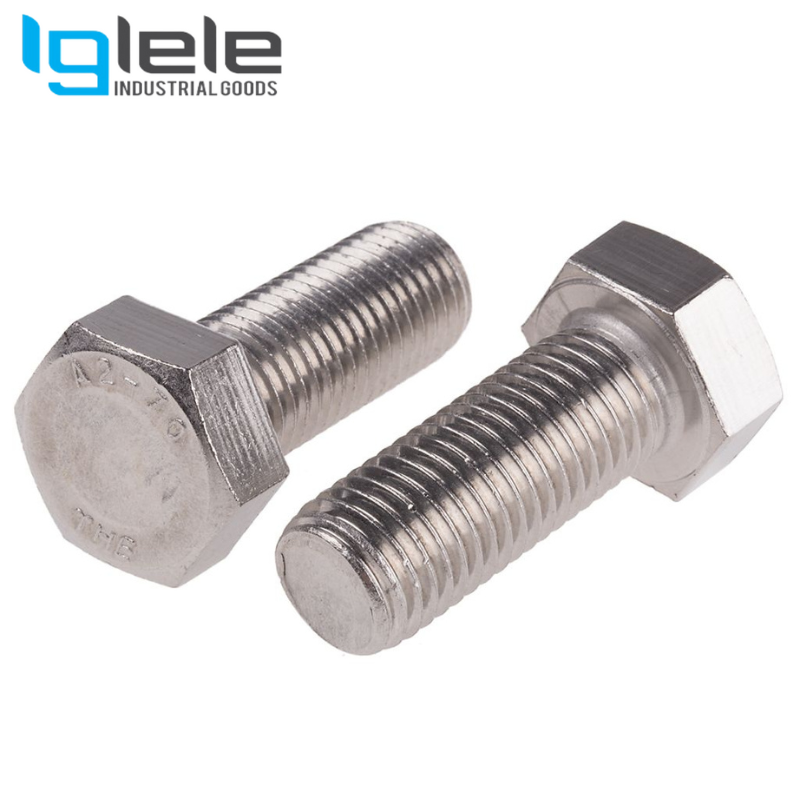
Illustrative image related to thread bolt
What Are Grade 8 Bolts and Their Advantages?
Grade 8 bolts are high-strength fasteners made from medium carbon steel, featuring fine threads that enhance their holding power. These bolts are typically used in heavy machinery and structural applications, where the ability to withstand high stress is critical. When selecting Grade 8 bolts, buyers should consider the load requirements of their application and whether the availability of these bolts meets their needs, as they may not be as readily available in all markets.
What Are Nylon Bolts and Their Suitable Uses?
Nylon bolts are non-metallic fasteners made from nylon, offering unique properties such as lightweight and corrosion resistance. These bolts are particularly useful in electrical applications and lightweight assemblies where metal fasteners might pose a risk of conductivity. Buyers should be aware that while nylon bolts are advantageous in specific contexts, they generally have lower strength compared to their metal counterparts. Evaluating the specific requirements of an application will help determine if nylon bolts are the right choice.
Key Industrial Applications of thread bolt
| Industry/Sector | Specific Application of thread bolt | Value/Benefit for the Business | Key Sourcing Considerations for this Application |
|---|---|---|---|
| Construction | Securing structural components in buildings | Provides stability and safety in construction projects | Quality standards, corrosion resistance, and local regulations |
| Automotive | Assembly of vehicle parts | Ensures reliability and performance of vehicles | Material specifications, compatibility with existing designs |
| Oil & Gas | Equipment assembly and maintenance | Enhances operational efficiency and safety | High-grade materials for corrosion resistance, certifications |
| Manufacturing | Machinery assembly and maintenance | Increases production efficiency and reduces downtime | Thread type and grade, bulk purchasing options |
| Aerospace | Aircraft assembly and repair | Critical for safety and compliance with regulations | Aerospace-grade materials, strict quality control standards |
How Are Thread Bolts Used in the Construction Industry?
In the construction industry, thread bolts are critical for securing structural components such as beams, columns, and trusses. They provide essential stability and safety, ensuring that buildings can withstand various loads and environmental conditions. Buyers in this sector must consider the quality of the bolts, including their corrosion resistance, to comply with local building codes and regulations, especially in regions prone to harsh weather conditions like Nigeria or Saudi Arabia.
What Role Do Thread Bolts Play in Automotive Applications?
In automotive manufacturing, thread bolts are extensively used to assemble various vehicle parts, from engines to chassis components. Their reliability directly impacts vehicle performance and safety, making it crucial for manufacturers to select bolts that meet stringent material specifications. International buyers should focus on sourcing bolts that are compatible with existing designs and can withstand the demanding conditions of automotive applications, particularly in regions with varying climates.
How Are Thread Bolts Utilized in the Oil & Gas Sector?
The oil and gas industry relies heavily on thread bolts for assembling and maintaining equipment used in extraction and processing. These bolts must be made from high-grade materials that resist corrosion due to exposure to harsh chemicals and extreme environments. Sourcing considerations include ensuring that the bolts meet industry certifications and standards, which is vital for operational efficiency and safety in regions like the Middle East, where oil extraction is a key economic activity.
What Is the Importance of Thread Bolts in Manufacturing?
In manufacturing, thread bolts are integral to the assembly and maintenance of machinery. They help to ensure that equipment operates efficiently, reducing downtime caused by mechanical failures. Buyers should consider the thread type and grade of the bolts, as these factors influence their strength and durability. Bulk purchasing options can also provide cost benefits, particularly for manufacturers in South America looking to optimize production processes.
How Are Thread Bolts Critical in Aerospace Applications?
In the aerospace sector, thread bolts are used in the assembly and repair of aircraft, where safety is paramount. These bolts must meet strict quality control standards and be made from aerospace-grade materials to ensure compliance with safety regulations. International buyers need to pay close attention to sourcing from reputable suppliers who can provide documentation proving the bolts’ suitability for aviation applications, which is particularly relevant for companies operating in Europe.
3 Common User Pain Points for ‘thread bolt’ & Their Solutions
Scenario 1: Sourcing Quality Thread Bolts for Harsh Environments
The Problem: Many B2B buyers, particularly those in industries like construction and manufacturing, face significant challenges when sourcing thread bolts that can withstand harsh environmental conditions. Buyers in regions such as Africa and the Middle East often encounter issues with corrosion and material degradation due to extreme temperatures and humidity. A common complaint is that standard bolts fail prematurely, leading to costly downtime and safety hazards.
The Solution: To mitigate these risks, buyers should prioritize sourcing thread bolts made from corrosion-resistant materials like stainless steel (grade 316 is particularly effective in saline environments) or specialized coatings such as hot-dipped galvanization. It is crucial to work with reputable suppliers who can provide detailed material certifications and test reports. Additionally, understanding the specific environmental conditions where the bolts will be used allows for better specification. Implementing routine inspections and maintenance can also extend the life of the fasteners, ensuring that replacements are only made when absolutely necessary.
Scenario 2: Difficulty in Choosing the Right Thread Type for Applications
The Problem: B2B buyers often struggle with the decision-making process regarding which thread type—coarse or fine—best suits their applications. This confusion can lead to improper fastening, equipment failure, and increased costs. In industries like automotive and machinery, where precision is paramount, using the wrong thread type can compromise the integrity of the assembly.
The Solution: To make informed choices, buyers should assess the specific requirements of their applications. Fine threads provide better tension and are ideal for applications requiring precise adjustments, while coarse threads offer greater resistance to stripping and are better suited for softer materials. Buyers should consult with engineers or technical experts to evaluate the load-bearing capacities and environmental factors influencing their choice. A comprehensive understanding of the application will ensure that the selected thread bolts meet the necessary strength and durability standards.
Scenario 3: Managing Inventory Levels of Various Bolt Sizes and Grades
The Problem: Another prevalent issue is managing the inventory of thread bolts, particularly when dealing with a wide range of sizes and grades. B2B buyers often find themselves with excess stock of less frequently used sizes or facing shortages of critical grades needed for urgent projects. This imbalance can lead to project delays and increased operational costs.
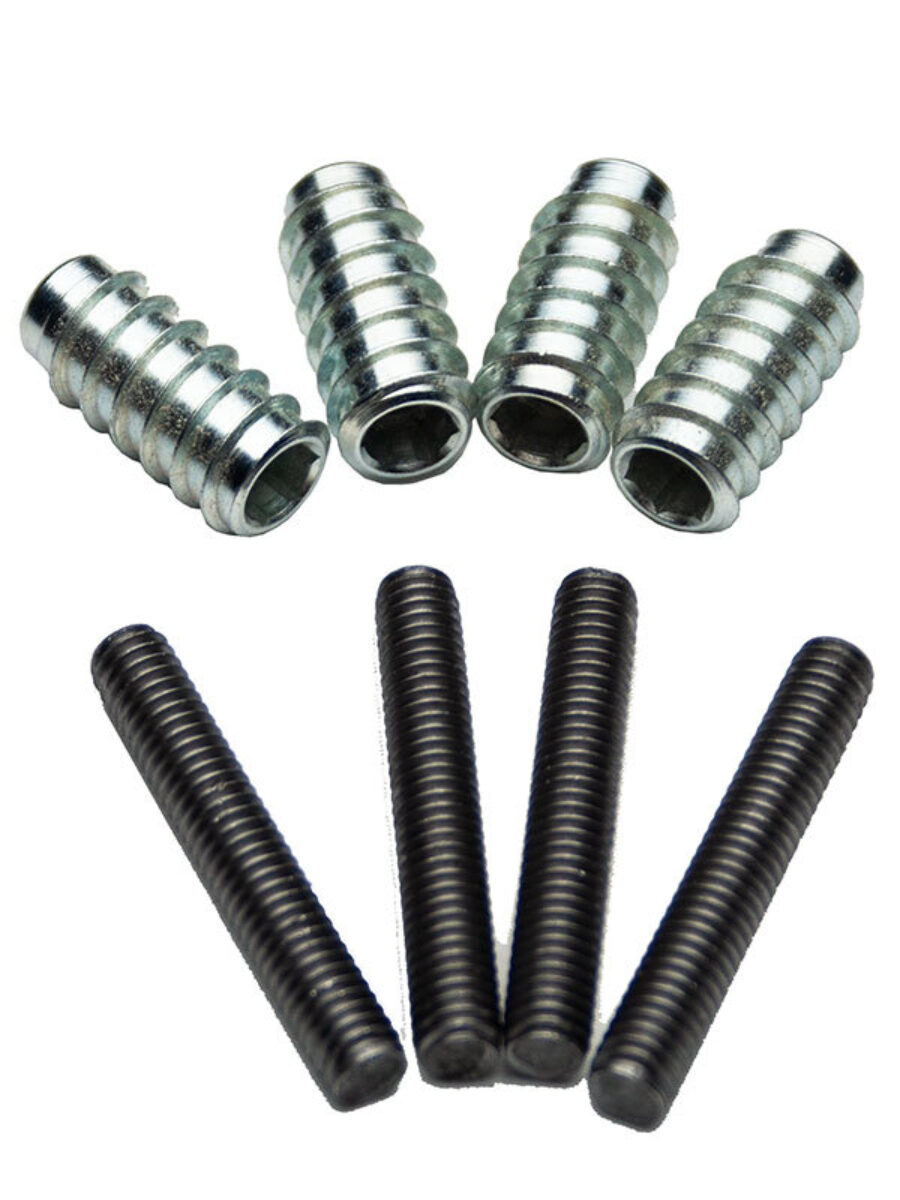
Illustrative image related to thread bolt
The Solution: Implementing a systematic inventory management strategy is essential. Buyers should utilize inventory management software that tracks usage patterns and alerts them when stock levels reach a predefined threshold. Regular audits of inventory can help identify slow-moving items, allowing buyers to make informed purchasing decisions. Collaborating with suppliers who offer flexible ordering options, such as bulk buying or consignment stock, can also alleviate pressure. Establishing strong relationships with multiple suppliers ensures that buyers can quickly source necessary materials, reducing lead times and preventing project disruptions.
Strategic Material Selection Guide for thread bolt
What Are the Key Properties of Common Materials Used for Thread Bolts?
When selecting materials for thread bolts, it is crucial to understand the properties that influence performance in various applications. The most common materials include stainless steel, carbon steel, alloy steel, and nylon. Each material has distinct characteristics that affect durability, corrosion resistance, and suitability for specific environments.
How Does Stainless Steel Perform in Thread Bolt Applications?
Stainless steel, particularly grades 18-8 and 316, is renowned for its excellent corrosion resistance, making it ideal for environments exposed to moisture, chemicals, or saltwater. Grade 18-8 is suitable for general use, while Grade 316 offers superior protection against corrosive elements, making it perfect for marine applications. However, stainless steel can be more expensive than other materials, which may impact budget considerations for large-scale projects.
Pros: High corrosion resistance, good strength, and durability.
Cons: Higher cost and potential for galling (seizing) during installation.
Impact on Application: Suitable for marine, chemical, and food processing industries.
Considerations for Buyers: Compliance with ASTM standards is essential, especially in regions with strict quality regulations.
What Are the Advantages and Disadvantages of Carbon Steel for Thread Bolts?
Carbon steel is a popular choice for thread bolts due to its strength and cost-effectiveness. It is available in various grades, such as Grade 2, Grade 5, and Grade 8, each offering different tensile strengths. While carbon steel bolts are durable and widely used in construction and automotive applications, they are prone to rusting without proper coatings, such as zinc plating.
Pros: Cost-effective, strong, and widely available.
Cons: Susceptible to corrosion without protective coatings.
Impact on Application: Commonly used in automotive and construction sectors where high strength is required.
Considerations for Buyers: Ensure appropriate coatings are applied to meet local environmental conditions, particularly in humid regions like Nigeria and Brazil.
Why Choose Alloy Steel for Heavy-Duty Thread Bolt Applications?
Alloy steel, often used in high-stress applications, offers enhanced strength and toughness compared to standard carbon steel. It is commonly used in heavy machinery and structural applications. However, alloy steel can be more expensive and may require specialized manufacturing processes, which can increase lead times.
Pros: Superior strength and fatigue resistance.
Cons: Higher cost and potential for more complex manufacturing processes.
Impact on Application: Ideal for heavy machinery and structural applications requiring high strength.
Considerations for Buyers: Compliance with international standards (e.g., DIN, JIS) is crucial, especially in regions with stringent safety regulations.
What Role Does Nylon Play in Thread Bolt Applications?
Nylon is a non-metallic option for thread bolts, often used in applications where corrosion resistance and lightweight properties are essential. Nylon bolts are suitable for electrical applications and environments where metal fasteners may cause interference. However, they have lower strength and temperature resistance compared to metal options.
Pros: Corrosion-resistant, lightweight, and non-conductive.
Cons: Lower strength and temperature limits compared to metals.
Impact on Application: Suitable for electrical and non-metallic applications.
Considerations for Buyers: Ensure compliance with local standards for non-metallic fasteners, especially in industrial settings.
Summary Table of Material Selection for Thread Bolts
| Material | Typical Use Case for thread bolt | Key Advantage | Key Disadvantage/Limitation | Relative Cost (Low/Med/High) |
|---|---|---|---|---|
| Stainless Steel | Marine, chemical, and food processing | High corrosion resistance | Higher cost and galling potential | High |
| Carbon Steel | Automotive and construction | Cost-effective and strong | Susceptible to corrosion | Low |
| Alloy Steel | Heavy machinery and structural applications | Superior strength and toughness | Higher cost and complex manufacturing | Med |
| Nylon | Electrical and non-metallic applications | Corrosion-resistant and lightweight | Lower strength and temperature limits | Low |
This strategic material selection guide provides critical insights for international B2B buyers, enabling informed decisions based on application requirements, environmental conditions, and regulatory compliance.
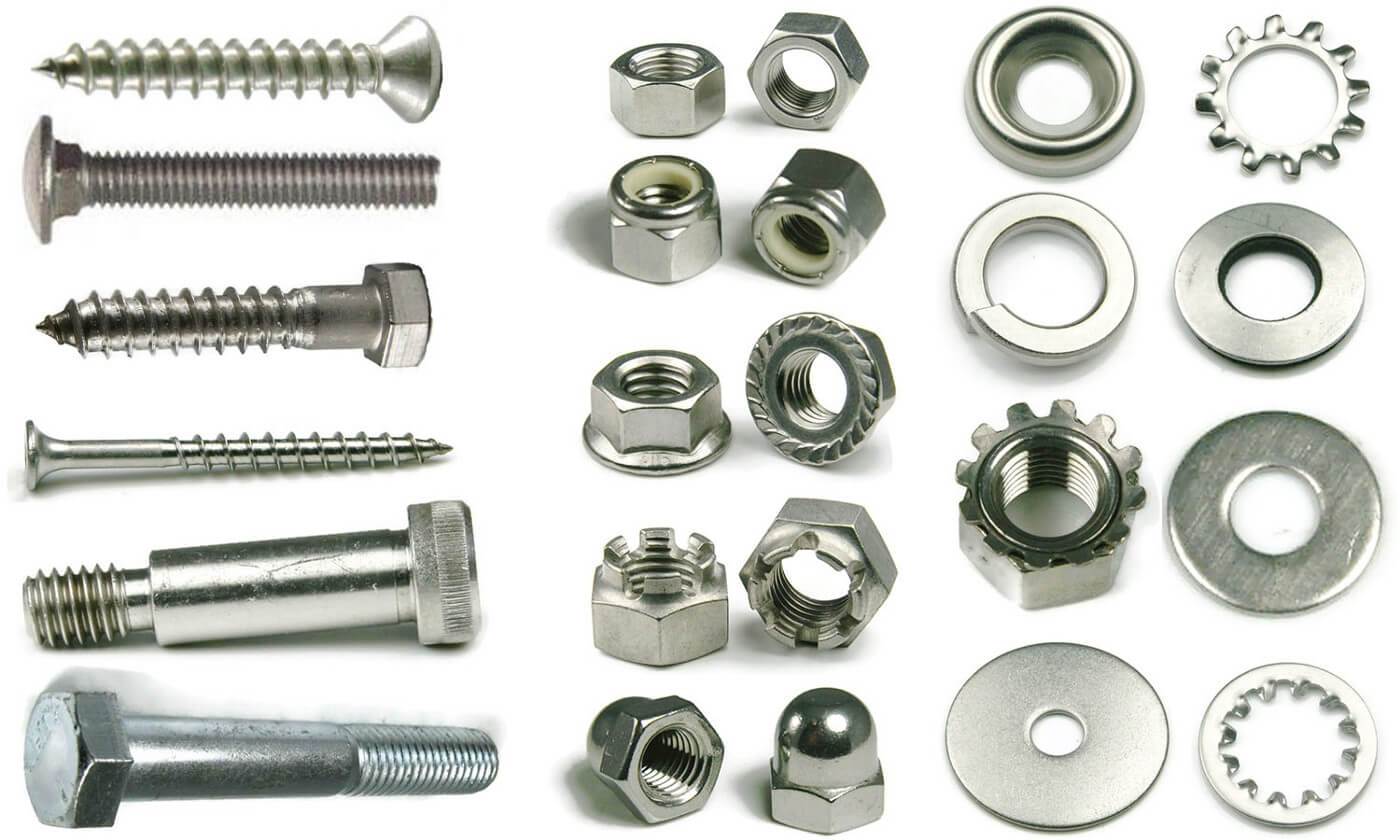
Illustrative image related to thread bolt
In-depth Look: Manufacturing Processes and Quality Assurance for thread bolt
What Are the Key Stages in the Manufacturing Process of Thread Bolts?
Manufacturing thread bolts involves several critical stages that ensure the final product meets the necessary specifications and standards. The primary stages include material preparation, forming, assembly, and finishing.
Material Preparation
The manufacturing process begins with selecting the appropriate raw materials, which typically include various grades of steel, stainless steel, or other alloys. The choice of material is crucial as it determines the bolt’s strength, corrosion resistance, and suitability for specific applications. Once selected, the materials are cut into specified lengths and may undergo processes like heat treatment to enhance their mechanical properties.
Forming Techniques
The next stage involves forming the bolt. This can be done using methods such as cold heading or hot forging. Cold heading is commonly used for producing hex bolts, where the material is shaped at room temperature, resulting in strong, durable bolts with excellent dimensional accuracy. Hot forging, on the other hand, involves heating the metal before shaping it, which can be beneficial for larger bolts or those requiring complex designs. After forming, threads are cut or rolled onto the bolt, which can be fine or coarse, depending on the application requirements.
Assembly and Quality Control
In some cases, bolts may require additional components, such as washers or nuts, to be assembled before packaging. During assembly, manufacturers often implement quality control measures to ensure that all components meet specified tolerances.
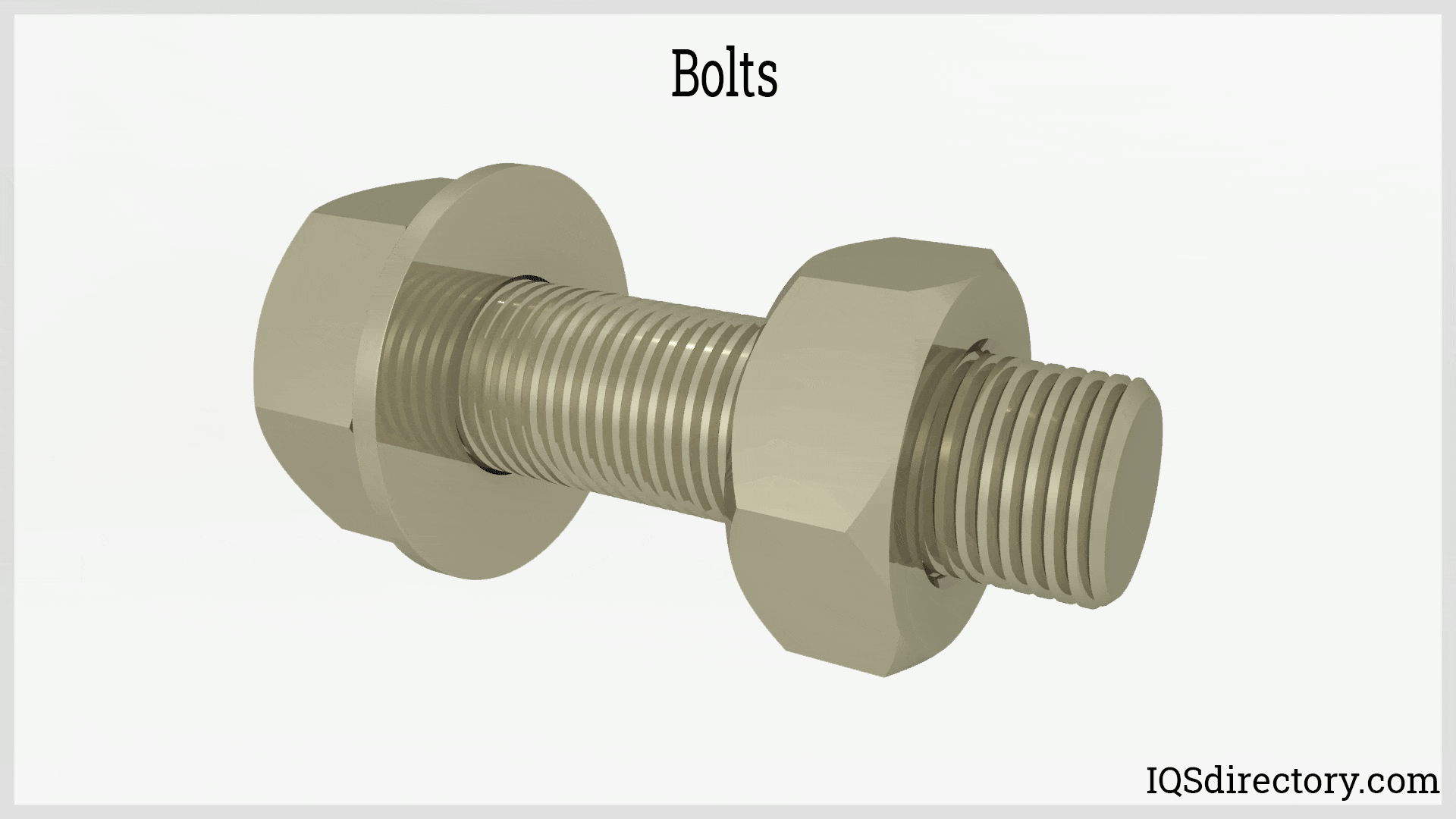
Illustrative image related to thread bolt
Finishing Processes
Finishing is the final stage of manufacturing and includes processes such as coating, plating, or polishing. These treatments enhance the bolt’s resistance to corrosion and wear, ensuring longevity in diverse environments. Common finishes include zinc plating for moderate corrosion resistance, while more robust options like stainless steel provide higher levels of protection in harsh conditions.
How Is Quality Assurance Implemented in Thread Bolt Manufacturing?
Quality assurance is paramount in the production of thread bolts, ensuring that each product meets international standards and customer specifications. This involves adhering to various standards, implementing stringent quality control checkpoints, and utilizing effective testing methods.
International Standards for Quality Assurance
Manufacturers of thread bolts typically comply with international quality management standards such as ISO 9001, which outlines criteria for a quality management system. Additionally, industry-specific standards may apply, such as CE marking for compliance with European safety standards or API standards for bolts used in the oil and gas sector. Compliance with these standards not only assures quality but also enhances the credibility of suppliers in international markets.
Quality Control Checkpoints
Quality control in bolt manufacturing is generally divided into several checkpoints:
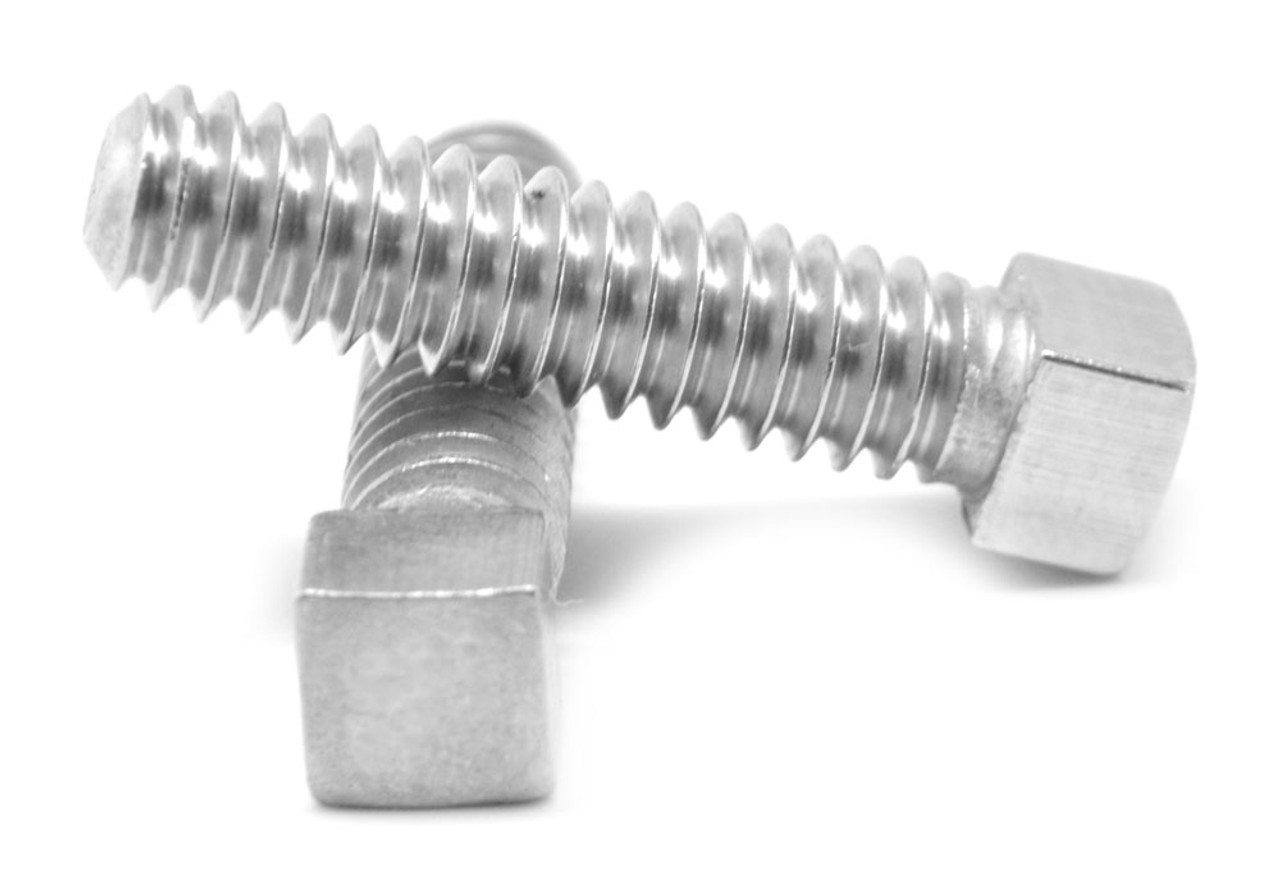
Illustrative image related to thread bolt
-
Incoming Quality Control (IQC): This phase involves inspecting raw materials upon arrival to ensure they meet specified standards. This may include checking for chemical composition, mechanical properties, and dimensional tolerances.
-
In-Process Quality Control (IPQC): During manufacturing, ongoing inspections are conducted to monitor the processes and ensure that any deviations from standards are corrected immediately. Techniques such as statistical process control (SPC) can be employed to track production quality in real-time.
-
Final Quality Control (FQC): After the manufacturing process, a final inspection is conducted. This includes checking the dimensions, threading accuracy, and surface finish of the bolts. Testing methods such as tensile testing, hardness testing, and corrosion resistance tests are commonly employed to verify that the final product meets the required specifications.
What Testing Methods Are Commonly Used in Thread Bolt Quality Assurance?
Several testing methods are utilized to ensure the quality and reliability of thread bolts. These methods help identify potential issues before the bolts are delivered to customers.
-
Tensile Testing: This test measures the bolt’s ability to withstand pulling forces until it breaks. It provides information on the material’s strength and ductility.
-
Hardness Testing: Hardness tests determine the resistance of the bolt to deformation. This is crucial for ensuring that the bolt can withstand the stresses it will encounter in service.
-
Corrosion Resistance Testing: For bolts intended for use in corrosive environments, such as marine or chemical applications, corrosion resistance tests (like salt spray testing) evaluate how well the bolt material can withstand corrosion over time.
-
Dimensional Inspection: Using tools like calipers and micrometers, manufacturers check the dimensions of the bolts to ensure they adhere to specified tolerances.
How Can B2B Buyers Verify Supplier Quality Control?
For B2B buyers, particularly those in international markets such as Africa, South America, the Middle East, and Europe, verifying the quality control processes of suppliers is essential. Here are several strategies:
-
Supplier Audits: Conducting regular audits of suppliers helps buyers assess the quality control measures in place. Audits can evaluate compliance with international standards, the effectiveness of quality control procedures, and the overall reliability of the manufacturing process.
-
Quality Reports: Requesting detailed quality assurance reports from suppliers can provide insights into their quality control processes. These reports should outline the results of various testing methods, compliance with relevant standards, and any corrective actions taken for quality issues.
-
Third-Party Inspections: Engaging third-party inspection services can provide an unbiased assessment of the supplier’s quality control processes. These inspections can occur at various stages of production, ensuring that the bolts meet the required specifications before shipment.
What Are the Quality Control Considerations for International Buyers?
International buyers must be aware of certain nuances in quality control when sourcing thread bolts from different regions. Factors such as regional manufacturing standards, variations in raw material quality, and logistical challenges can impact the final product’s quality.
-
Understanding Local Standards: It is crucial for buyers to understand the local manufacturing and quality standards in the supplier’s region. This knowledge helps buyers set realistic expectations regarding product quality and compliance.
-
Cultural and Communication Barriers: Buyers should consider potential cultural differences that may impact quality assurance practices. Establishing clear communication channels and expectations can help mitigate misunderstandings.
-
Logistics and Supply Chain Management: International shipping can introduce risks related to product handling and transportation. Buyers should work closely with suppliers to ensure that quality control measures are maintained throughout the supply chain.
By focusing on these aspects of manufacturing processes and quality assurance, B2B buyers can make informed decisions when sourcing thread bolts, ensuring they receive high-quality products that meet their specific needs.
Practical Sourcing Guide: A Step-by-Step Checklist for ‘thread bolt’
Introduction
This guide provides a comprehensive checklist for B2B buyers looking to procure thread bolts, ensuring that you make informed and strategic purchasing decisions. Whether you’re in Africa, South America, the Middle East, or Europe, following these steps will help streamline your sourcing process, minimize risks, and secure high-quality products tailored to your specific needs.
1. Define Your Technical Specifications
Clearly articulate the specifications needed for your thread bolts. This includes the type (e.g., hex bolts, tap bolts), thread density (fine or coarse), material (stainless steel, zinc plated), and size. Precise specifications are crucial to ensure compatibility with your application and to avoid costly mistakes during assembly.
- Consider application requirements: Identify if the bolts will be exposed to corrosive environments or high stress, which may necessitate materials like stainless steel 316 or Grade 8 steel.
- Determine dimensions: Specify length, diameter, and thread type to ensure a proper fit.
2. Research and Identify Potential Suppliers
Conduct thorough research to find reliable suppliers who specialize in thread bolts. Utilize industry directories, trade shows, and online marketplaces to compile a list of potential vendors.
- Look for established companies: Prioritize suppliers with a proven track record and positive customer reviews.
- Evaluate product range: Ensure they offer a variety of thread bolts to meet your diverse needs.
3. Evaluate Supplier Certifications and Compliance
Ensure that your chosen suppliers adhere to industry standards and possess relevant certifications, such as ISO 9001 or ASTM compliance. This step is vital for ensuring quality and reliability.
- Request documentation: Ask for certificates of compliance and quality assurance processes.
- Check for international standards: Suppliers should meet the specific standards required in your region or industry.
4. Request Samples for Quality Assessment
Before placing a bulk order, request samples of the thread bolts. This allows you to assess the quality and ensure they meet your specifications.
- Perform material tests: Check for corrosion resistance, tensile strength, and threading accuracy.
- Inspect for defects: Look for any manufacturing imperfections that could compromise performance.
5. Compare Pricing and Terms of Sale
Gather quotes from multiple suppliers and compare pricing alongside terms of sale, including payment terms, lead times, and shipping costs. This step helps you identify the best value for your investment.
- Negotiate terms: Don’t hesitate to discuss pricing, especially for bulk orders.
- Consider total cost of ownership: Factor in shipping, handling, and potential tariffs when evaluating costs.
6. Verify Customer Support and After-Sales Service
Assess the level of customer support provided by suppliers. Strong after-sales service is essential for addressing any issues that may arise post-purchase.
- Inquire about warranty and return policies: Understand their processes for defective products or returns.
- Check responsiveness: Evaluate how quickly they respond to inquiries, which can indicate their commitment to customer satisfaction.
7. Finalize and Place Your Order
Once you have completed all evaluations and feel confident in your supplier choice, finalize your order. Ensure all specifications and agreements are documented clearly to avoid any misunderstandings.
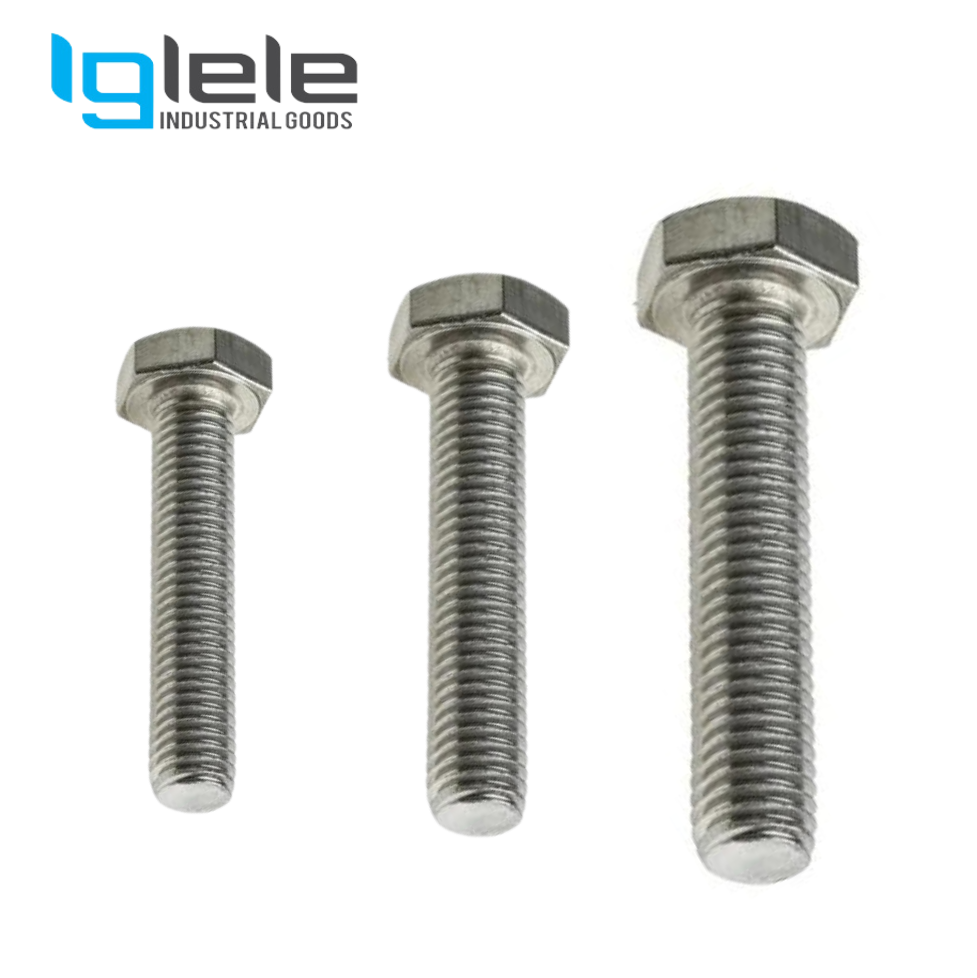
Illustrative image related to thread bolt
- Confirm delivery timelines: Verify expected delivery dates to align with your project schedules.
- Document the agreement: Keep records of all communications and agreements for reference.
By following these steps, you can effectively navigate the sourcing process for thread bolts, ensuring that your purchases meet the necessary specifications and quality standards for your projects.
Comprehensive Cost and Pricing Analysis for thread bolt Sourcing
Analyzing the cost structure and pricing dynamics of thread bolts is essential for international B2B buyers, especially those from regions like Africa, South America, the Middle East, and Europe. Understanding these components will enable buyers to make informed purchasing decisions that align with their operational needs and budget constraints.
What Are the Key Cost Components in Thread Bolt Sourcing?
Materials: The primary cost driver in thread bolt production is the raw material used. Common materials include stainless steel (18-8, 316), carbon steel, and various grades of galvanized steel. Stainless steel offers higher corrosion resistance but comes at a premium. The choice of material significantly impacts both the cost and the performance of the bolts.
Labor and Manufacturing Overhead: Labor costs vary by region and can influence overall pricing. In countries with lower labor costs, such as those in parts of Africa and South America, manufacturers may be able to offer competitive pricing. However, production in regions with higher labor costs may require a more significant markup to cover these expenses. Manufacturing overhead includes costs associated with facility maintenance, utilities, and administrative expenses, which also contribute to the final price.
Tooling and Quality Control (QC): The initial setup for production, including tooling and machinery, affects pricing. High-quality production often requires more advanced machinery and rigorous QC processes, which can elevate costs. Suppliers may pass these costs onto buyers, particularly if they emphasize quality certifications and testing.
Logistics: Shipping costs, including freight and insurance, are crucial in determining the final price, especially for international buyers. Factors such as distance, mode of transport, and regional tariffs can add to the overall cost. Buyers should also consider potential delays in logistics that can impact supply chains.
Margin: Suppliers typically include a profit margin in their pricing structure. This margin can vary based on market conditions, competition, and the supplier’s business model. Understanding the typical margins in the industry can help buyers gauge whether a quote is reasonable.
How Do Pricing Influencers Affect Thread Bolt Costs?
Volume and Minimum Order Quantity (MOQ): Pricing often benefits from bulk orders. Suppliers may offer significant discounts for larger quantities, which can be a critical factor for buyers aiming to optimize costs. Understanding the MOQ can help buyers negotiate better deals.
Specifications and Customization: Custom specifications, such as unique sizes, finishes, or grades, can lead to increased costs. Buyers should weigh the necessity of customization against the potential for higher prices.
Quality and Certifications: The presence of industry certifications (e.g., ISO, ASTM) can justify higher prices due to the assurance of quality. Buyers should evaluate whether these certifications align with their needs, particularly in safety-sensitive applications.
Supplier Factors: The reliability and reputation of a supplier can also influence pricing. Established suppliers with a track record of quality may command higher prices due to the perceived lower risk. Conversely, newer or less reputable suppliers may offer lower prices to attract business.
Incoterms: Understanding Incoterms (International Commercial Terms) is vital for international buyers. These terms dictate who bears the risk and costs associated with transportation, which can significantly affect the total price paid for the bolts.
What Are the Best Practices for B2B Buyers in Thread Bolt Sourcing?
Negotiation: Effective negotiation can lead to favorable pricing. Buyers should be prepared to discuss volume commitments, payment terms, and delivery schedules to achieve better terms.
Cost-Efficiency: Buyers should conduct a total cost of ownership analysis, considering not just the purchase price but also logistics, potential downtime, and maintenance costs associated with different bolt types and materials.
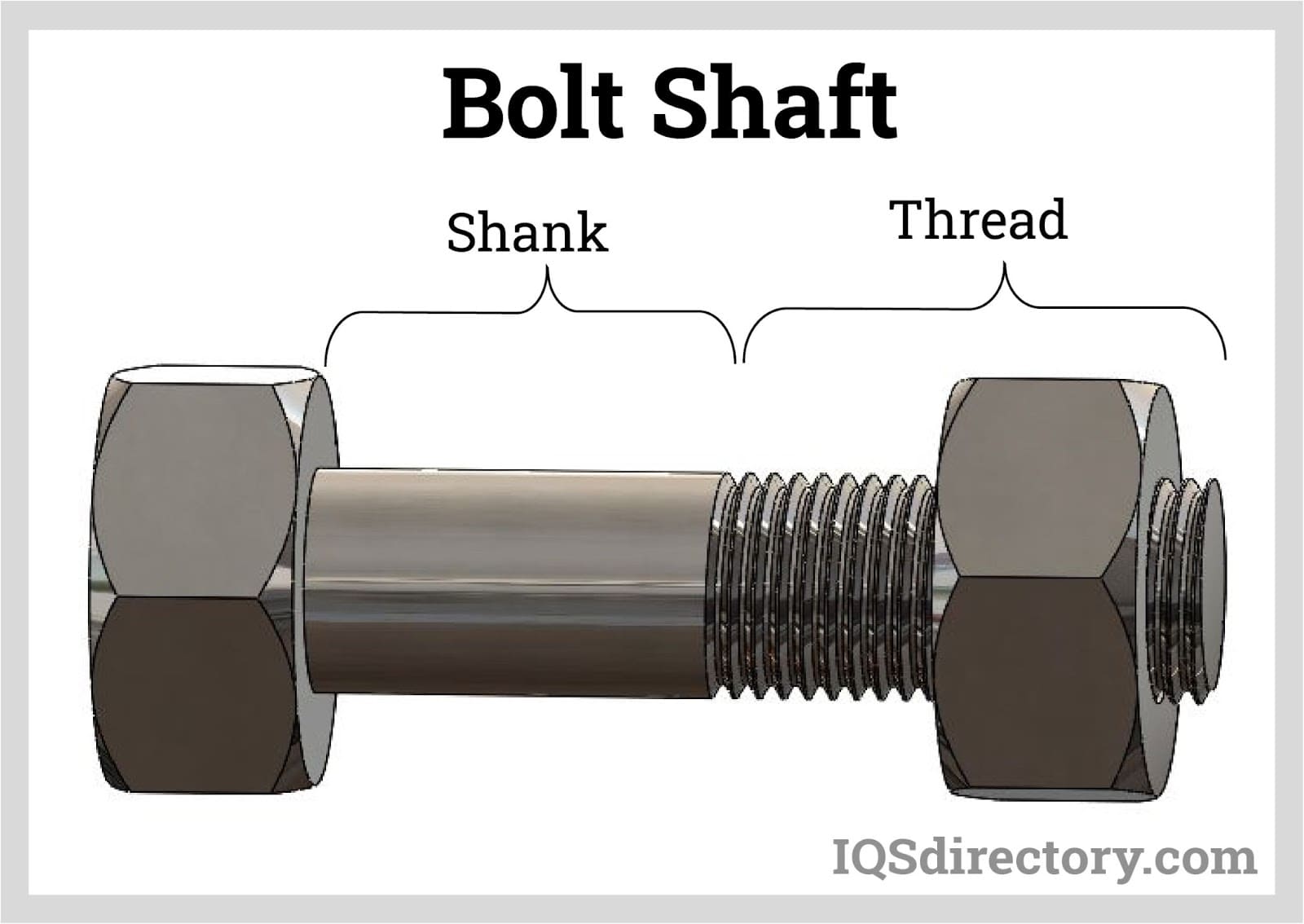
Illustrative image related to thread bolt
Pricing Nuances for International Buyers: Buyers from regions like Nigeria and Saudi Arabia should account for currency fluctuations, local tariffs, and import duties when budgeting for purchases. Engaging with local suppliers or distributors can sometimes mitigate these costs.
Disclaimer
Prices for thread bolts can vary widely based on the factors discussed above. The figures provided in various references are indicative and may not reflect current market conditions. Buyers are encouraged to conduct thorough market research and obtain multiple quotes to ensure competitive pricing.
Alternatives Analysis: Comparing thread bolt With Other Solutions
The fastener industry is characterized by a variety of solutions that cater to different requirements in construction, machinery, and assembly. As B2B buyers evaluate their options, understanding how thread bolts compare with alternative fastening solutions is crucial for making informed decisions.
| Comparison Aspect | ‘Thread Bolt’ | Alternative 1: Hex Bolt | Alternative 2: Tap Bolt |
|---|---|---|---|
| Performance | High tensile strength and durability; suitable for heavy loads. | Excellent shear strength; ideal for structural applications. | Provides good holding power; suited for softer materials. |
| Cost | Moderate cost, varies by material and size. | Generally affordable, with a range of grades affecting price. | Comparable to hex bolts; costs may vary based on material. |
| Ease of Implementation | Requires a nut or tapped hole; straightforward installation. | Easy to install with a wrench; available in various sizes and grades. | Simple to use in threaded holes, but may require precise alignment. |
| Maintenance | Minimal maintenance required; check for corrosion. | Low maintenance; may require periodic inspections for wear. | Limited maintenance; inspect for thread wear and corrosion. |
| Best Use Case | Heavy machinery, structural applications, and automotive uses. | Construction and machinery where high strength is crucial. | Applications involving softer materials like plastics or wood. |
What Are the Advantages and Disadvantages of Hex Bolts Compared to Thread Bolts?
Hex bolts are a versatile alternative to thread bolts, featuring a hexagonal head that allows for easy fastening with a wrench. Their performance is particularly strong in structural applications due to their superior shear strength, making them ideal for construction projects. However, they may require a nut or a pre-tapped hole, which can complicate installation in some scenarios. Hex bolts come in various grades and materials, allowing for flexibility in cost and application, but their prices can escalate with higher-grade materials.
How Do Tap Bolts Compare to Thread Bolts in Terms of Performance?
Tap bolts, also known as fully threaded bolts, are designed for use in pre-tapped holes and offer a strong hold in softer materials like plastic or wood. Their fully threaded design provides a consistent grip along the entire length of the bolt. While tap bolts can be easier to install in certain applications, they may not offer the same level of shear strength as hex bolts or thread bolts, making them less suitable for heavy loads. Cost-wise, they are generally comparable to hex bolts, but buyers should consider the specific material and application needs.
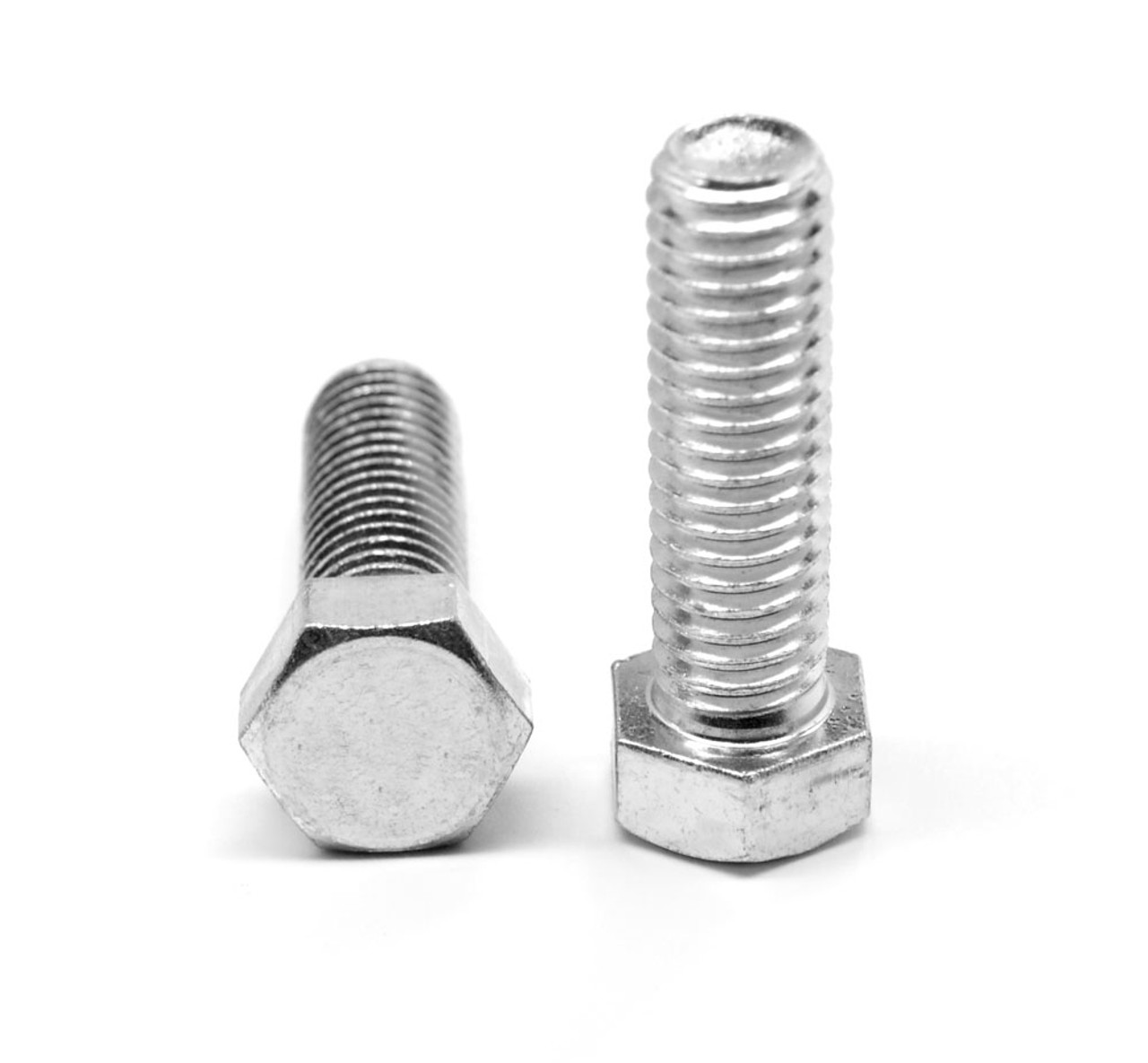
Illustrative image related to thread bolt
Conclusion: How Can B2B Buyers Determine the Right Fastening Solution?
When selecting the right fastening solution, B2B buyers should consider their specific application requirements, including load capacity, material compatibility, and installation environment. While thread bolts offer robust performance for heavy-duty applications, hex bolts and tap bolts provide viable alternatives that may better suit certain projects. Evaluating factors such as cost, ease of installation, and maintenance will help buyers make informed choices that align with their operational needs and budget constraints. Ultimately, understanding the unique advantages and limitations of each fastener type will empower buyers to select the most effective solution for their projects.
Essential Technical Properties and Trade Terminology for thread bolt
What Are the Key Technical Properties of Thread Bolts?
When sourcing thread bolts, understanding their technical properties is crucial for ensuring compatibility and performance in your applications. Here are some essential specifications to consider:
-
Material Grade
Thread bolts are typically made from various materials, each offering different properties. Common materials include stainless steel (grades 304 and 316), carbon steel, and alloy steel. Stainless steel 316, for instance, is highly resistant to corrosion, making it ideal for marine or chemical environments. Understanding the material grade helps buyers select bolts that will withstand specific environmental conditions and loads. -
Thread Type
Thread bolts come in two primary types: coarse and fine threads. Coarse threads provide better resistance to stripping and are often used in softer materials, while fine threads are ideal for applications requiring higher tension and precision. Selecting the correct thread type is critical in ensuring that the bolt performs well under load and provides the necessary clamping force. -
Diameter and Length
The diameter and length of a thread bolt are vital dimensions that affect its load-bearing capacity and suitability for specific applications. Bolts are available in various sizes, typically ranging from 1/4 inch to 1½ inches in diameter. Understanding these dimensions allows buyers to match bolts accurately to their project requirements. -
Tensile Strength
This property indicates the maximum stress a bolt can withstand while being stretched or pulled before failing. It is often expressed in pounds per square inch (PSI) or megapascals (MPa). Higher tensile strength bolts are essential in applications where high loads are expected, such as structural or mechanical assemblies. -
Finish and Coating
The finish or coating applied to a bolt can significantly affect its corrosion resistance and aesthetic appeal. Common finishes include zinc plating, galvanization, and chrome plating. A proper coating not only enhances longevity but also ensures compliance with industry standards, particularly in environments prone to rust and deterioration. -
Tolerance Levels
Tolerance refers to the permissible limits of variation in a physical dimension. In the context of thread bolts, tighter tolerances ensure a better fit and function in assemblies, reducing the risk of failure. Understanding tolerance is essential for manufacturers and buyers who require precision-engineered products.
What Are Common Trade Terms Related to Thread Bolts?
Navigating the fastener market involves familiarity with certain industry jargon. Here are several key terms to know:
-
OEM (Original Equipment Manufacturer)
An OEM is a company that produces parts and equipment that may be marketed by another manufacturer. Understanding OEM specifications ensures that the thread bolts you are sourcing meet the exact requirements for your machinery or assembly. -
MOQ (Minimum Order Quantity)
This term refers to the smallest number of units a supplier is willing to sell. Knowing the MOQ is essential for budget planning and inventory management, especially for businesses looking to purchase in bulk. -
RFQ (Request for Quotation)
An RFQ is a document sent to suppliers asking for a price quote on specific products. This is a critical step in the procurement process, allowing buyers to compare prices and terms from multiple suppliers before making a decision. -
Incoterms (International Commercial Terms)
These are standardized trade terms used in international shipping to clarify the responsibilities of buyers and sellers. Understanding Incoterms helps businesses avoid misunderstandings regarding shipping costs, insurance, and delivery responsibilities. -
Lead Time
This refers to the time it takes from placing an order until it is delivered. Knowing the lead time is crucial for project planning and inventory control, especially in industries where timing is critical. -
Certification Standards
These are regulatory benchmarks that ensure products meet certain safety and quality criteria. Familiarity with relevant certification standards is vital for ensuring compliance and quality assurance in your procurement processes.
By grasping these technical properties and trade terms, B2B buyers can make informed decisions when sourcing thread bolts, ensuring that they meet the specific needs of their projects while navigating the complexities of international trade.
Navigating Market Dynamics and Sourcing Trends in the thread bolt Sector
What Are the Current Market Dynamics and Key Trends in the Thread Bolt Sector?
The global thread bolt market is experiencing significant growth, driven by increasing industrialization and infrastructure development across Africa, South America, the Middle East, and Europe. Key sectors such as construction, automotive, and machinery manufacturing are essential consumers of thread bolts, particularly hex bolts, which are favored for their strength and versatility. As businesses seek to enhance operational efficiency, there is a noticeable shift towards automation and digital procurement processes, making it easier for international buyers to source high-quality fasteners online.
Emerging trends include the rise of fully threaded and partially threaded hex bolts, catering to diverse applications where strength and resistance to shear forces are critical. Additionally, advancements in materials science have led to the development of high-strength alloys and corrosion-resistant coatings, such as stainless steel and zinc plating, which are increasingly sought after in harsh environments like coastal regions. The growing emphasis on quality assurance and compliance with international standards is also reshaping sourcing strategies, encouraging buyers to engage with certified manufacturers.
International B2B buyers must also be aware of fluctuating raw material prices and supply chain disruptions caused by geopolitical tensions and environmental regulations. To navigate these dynamics effectively, establishing long-term relationships with reliable suppliers and leveraging technology for real-time market insights can provide a competitive edge.
How Can B2B Buyers Prioritize Sustainability and Ethical Sourcing in the Thread Bolt Sector?
Sustainability has become a critical consideration in the thread bolt sector, as manufacturers and buyers alike are increasingly aware of the environmental impact of their sourcing decisions. The production of fasteners, particularly those made from steel, can be resource-intensive, leading to significant carbon emissions and waste. B2B buyers from regions like Africa and South America are encouraged to seek suppliers that prioritize sustainable practices, such as reducing energy consumption and minimizing waste during production.
Ethical sourcing is equally important, as consumers demand transparency in supply chains. Buyers should look for manufacturers that adhere to international labor standards and demonstrate a commitment to fair trade practices. Certifications such as ISO 14001 (Environmental Management) and ISO 9001 (Quality Management) can serve as indicators of a supplier’s dedication to sustainability and ethical practices.
Moreover, the use of ‘green’ materials—such as recycled steel and eco-friendly coatings—can enhance a company’s sustainability profile. By prioritizing suppliers who engage in responsible sourcing, B2B buyers not only contribute to environmental protection but can also improve their brand reputation and appeal to environmentally-conscious customers.
What Is the Historical Context of the Thread Bolt Industry?
The history of the thread bolt industry can be traced back to the Industrial Revolution, where the need for reliable fastening solutions became paramount with the rise of machinery and construction projects. Initially, bolts were crafted from wrought iron and later evolved to include steel, significantly enhancing their strength and durability. The introduction of standardized thread sizes in the early 20th century further revolutionized the industry, allowing for greater interchangeability and efficiency in manufacturing processes.
As technology advanced, the introduction of coatings and treatment processes improved the corrosion resistance and longevity of bolts, making them suitable for a wider range of applications. Today, the thread bolt sector continues to innovate, with ongoing developments in materials and manufacturing techniques that address the evolving needs of industries worldwide. Understanding this evolution is vital for B2B buyers, as it informs their choices in sourcing fasteners that meet contemporary standards of quality and performance.
Frequently Asked Questions (FAQs) for B2B Buyers of thread bolt
-
How do I choose the right thread bolt for my application?
Choosing the right thread bolt depends on several factors, including the load requirements, environmental conditions, and material compatibility. For heavy-duty applications, consider using grade 8 bolts made from high-strength materials. If corrosion resistance is a concern, stainless steel or zinc-plated options are ideal. Additionally, assess the thread type—coarse threads provide better grip in softer materials, while fine threads are suited for applications requiring precise tensioning. Always consult with your supplier to ensure that you are selecting the appropriate bolt for your specific needs. -
What is the best material for thread bolts in harsh environments?
In harsh environments, particularly those involving exposure to saltwater or chemicals, stainless steel 316 is the best choice due to its high corrosion resistance. For general applications, stainless steel 18-8 is also a reliable option, providing good strength and moderate corrosion resistance. If cost is a factor, consider galvanized steel, which offers moderate protection against rust. Always evaluate the specific environmental factors your bolts will face to select the most appropriate material. -
What are the key factors to consider when vetting suppliers for thread bolts?
When vetting suppliers, consider their certifications, manufacturing capabilities, and product quality. Look for ISO certifications, as they indicate adherence to international quality standards. Evaluate their experience in your industry and their ability to provide custom solutions, if needed. Request samples to assess the quality of their products, and check references or reviews from other buyers. Transparency in pricing, delivery times, and customer service responsiveness are also critical factors in making an informed decision. -
What are the common minimum order quantities (MOQs) for thread bolts?
Minimum order quantities (MOQs) for thread bolts can vary significantly based on the supplier and the specific product. Typically, MOQs can range from 100 pieces to several thousand. Custom or specialized bolts often have higher MOQs. It is advisable to communicate your requirements clearly with potential suppliers and negotiate terms that align with your project needs. Some suppliers may offer flexibility for smaller orders, especially if you are a new customer or ordering a variety of products. -
How can I ensure quality assurance for thread bolts?
To ensure quality assurance, request detailed specifications and certifications from your supplier regarding the bolts. Many manufacturers conduct tests for tensile strength, corrosion resistance, and dimensional accuracy. It’s beneficial to establish a quality control process that includes inspection upon delivery and random sampling during production. Additionally, consider third-party testing if you are sourcing from unfamiliar suppliers. Building a strong relationship with your supplier and maintaining open communication about quality expectations will also help ensure consistent product standards. -
What payment terms should I expect when sourcing thread bolts internationally?
Payment terms for international purchases of thread bolts typically include options like letters of credit, advance payments, or open account terms. Commonly, suppliers may request a deposit (20-50%) upon order confirmation, with the balance due before shipment or upon delivery. Always negotiate terms that suit your cash flow and risk tolerance. It’s also wise to consider the implications of currency fluctuations and transaction fees in international trade, and to ensure that your payment method is secure. -
What logistics considerations should I keep in mind when importing thread bolts?
When importing thread bolts, consider shipping methods, customs regulations, and lead times. Air freight is faster but more expensive, while sea freight is cost-effective for large shipments but takes longer. Familiarize yourself with the customs duties and import taxes applicable in your country, as these can significantly affect total costs. Additionally, ensure that your supplier provides the necessary documentation for customs clearance. Working with a logistics provider experienced in international shipping can streamline the process and help you avoid potential delays. -
Can I customize thread bolts to meet specific project requirements?
Yes, many suppliers offer customization options for thread bolts, allowing you to specify dimensions, materials, coatings, and thread types. When discussing customization, provide detailed technical drawings or specifications to ensure clarity. Be aware that custom orders may come with higher costs and longer lead times compared to standard products. It’s advisable to communicate your needs early in the sourcing process and verify that the supplier has the capability to meet your specific requirements.
Top 7 Thread Bolt Manufacturers & Suppliers List
1. Fastenere – Hex Bolts
Domain: fastenere.com
Registered: 2016 (9 years)
Introduction: Hex Bolts are bolts with a hexagonal head and machine threads, commonly used in construction. They can be secured with a socket or wrench and are compatible with nuts or other internally threaded items. Stainless hex bolts are also known as Hex Cap Screws, Hex head screws, Tap Bolts, and Hex Cap Bolts. They come in two thread types: fully threaded and partially threaded. Fully threaded hex bolts a…
2. Bolt Depot – Fine Thread Hex Bolts
Domain: boltdepot.com
Registered: 1999 (26 years)
Introduction: Hex bolts with fine thread, available in various materials including Stainless steel 18-8, Stainless steel 316, Zinc plated grade 5 steel, Zinc plated grade 8 steel yellow, Chrome plated steel, and Nylon 6/6. Diameter options include #10-32, 1/4″-28, 5/16″-24, 3/8″-24, 7/16″-20, 1/2″-20, 9/16″-18, 5/8″-18, 3/4″-16, 7/8″-14, and 1″-14. Length options range from 1/4″ to 8″. Wrench sizes available in…
3. McMaster – Thread Bolts & Fasteners
Domain: mcmaster.com
Registered: 1994 (31 years)
Introduction: This company, McMaster – Thread Bolts & Fasteners, is a notable entity in the market. For specific product details, it is recommended to visit their website directly.
4. US Bolt Kits – Grade 8 Fine Thread Hex Cap Screws
Domain: usboltkits.com
Registered: 2017 (8 years)
Introduction: Grade 8 SAE Fine Thread Hex Cap Screws, Finish: Yellow Zinc, Available Lengths: 1″, 1-1/2″, 1/2″, 2″, 2-1/2″, 3″, 3-1/2″, 3/4″, 4″, 5″, Thread Sizes: 1/2-20, 1/4-28, 3/4-16, 3/8-24, 5/16-24, 5/8-18, 7/16-20, Thread Type: Fine, Pricing examples: 7/16-20 x 1-1/2″ – $0.65, 5/16-24 x 1″ – $0.25, 1/2-20 x 1-1/2″ – $0.74, 7/16-20 x 1″ – $0.61, 3/8-24 x 1″ – $0.28, 5/16-24 x 3/4″ – $0.22, 5/8-18 x 2″ – $…
5. Multiboard – Premium Bolts Collection
Domain: multiboard.io
Registered: 2023 (2 years)
Introduction: Bolts: Big Thread, Multihead, Push-Fit Hole, Bolt Mid Thread, Plain Head, Bolt Small Thread, Small Thread Head, Bolt Big Thread Mid Thread, Push-Fit Head, Small Thread Hole, Bolt Big Thread, Flat Head, Push-Fit Hole, Bolt Big Thread, Plain Head, Bolt Big Thread, Flat Head, Bolt Big Thread, Flat Push-Fit Head, Small Thread Hole, Bolt Big Thread, Push-Fit Hole, Bolt Mid Thread Mid Thread, Flat Head,…
6. John Deere – 4110 Tractor Hydraulic Line Bolt
Domain: reddit.com
Registered: 2005 (20 years)
Introduction: John Deere 4110 tractor, steel hydraulic line, bolt (#4)
7. Builders Stainless – 1/2 -13 x 6 Hex Head Full Thread Bolt
Domain: buildersstainless.com
Registered: 2015 (10 years)
Introduction: {“name”: “1/2″ -13 x 6″ Hex Head Full Thread Bolt, 18-8 SS”, “part_number”: “13727”, “price”: “$3.83”, “hex_head_size”: “3/4″”, “fastener_length”: “6””, “thread_length”: “1-1/4″”, “material”: “18-8 Stainless Steel”, “applications”: “general construction, industrial and marine applications”, “quantity_pricing”: [{“quantity_range”: “1 – 9”, “price”: “$3.83”}, {“quantity_range”: “10 – 99”, “price”: “…
Strategic Sourcing Conclusion and Outlook for thread bolt
What Are the Key Takeaways for Strategic Sourcing of Thread Bolts?
In the competitive landscape of fasteners, particularly thread bolts, strategic sourcing is paramount for international B2B buyers. Understanding the various types of thread bolts—such as hex bolts and their material specifications—enables buyers to make informed decisions that align with their project requirements. For instance, the choice between stainless steel and zinc-plated options significantly impacts durability and corrosion resistance, especially in challenging environments like those found in parts of Africa and the Middle East.
Moreover, engaging with reputable suppliers can enhance supply chain reliability, ensuring timely access to quality products. As industries evolve, leveraging innovative sourcing strategies that consider local market dynamics and global best practices will be essential.
How Can B2B Buyers Prepare for Future Trends in Thread Bolt Sourcing?
Looking ahead, B2B buyers should stay attuned to emerging trends such as sustainable materials and advanced manufacturing techniques. By proactively adapting to these changes, businesses can not only meet regulatory demands but also appeal to environmentally conscious consumers.
In conclusion, the strategic sourcing of thread bolts presents a unique opportunity for businesses across Africa, South America, the Middle East, and Europe to enhance operational efficiency and competitive edge. We encourage you to explore your sourcing options today and position your business for future success in this dynamic market.
Important Disclaimer & Terms of Use
⚠️ Important Disclaimer
The information provided in this guide, including content regarding manufacturers, technical specifications, and market analysis, is for informational and educational purposes only. It does not constitute professional procurement advice, financial advice, or legal advice.
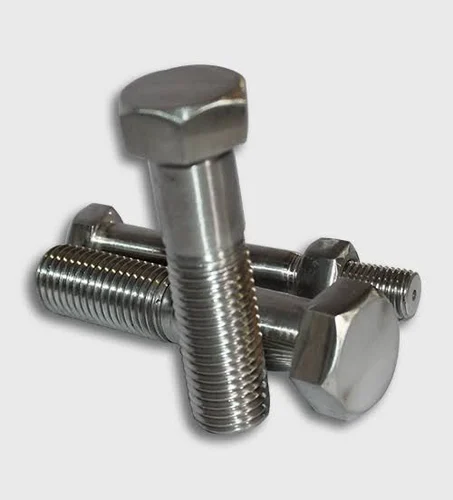
Illustrative image related to thread bolt
While we have made every effort to ensure the accuracy and timeliness of the information, we are not responsible for any errors, omissions, or outdated information. Market conditions, company details, and technical standards are subject to change.
B2B buyers must conduct their own independent and thorough due diligence before making any purchasing decisions. This includes contacting suppliers directly, verifying certifications, requesting samples, and seeking professional consultation. The risk of relying on any information in this guide is borne solely by the reader.
